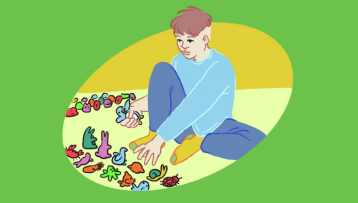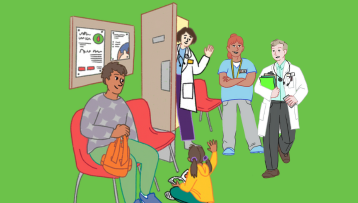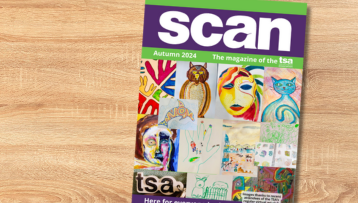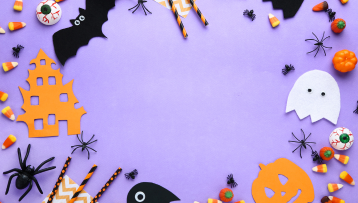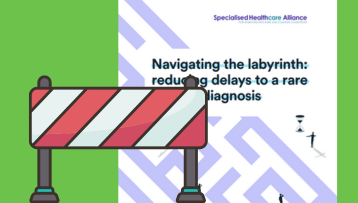Back in 2020, we asked the TSC community to get involved in the Stay Calm Project, a study looking into emotional outbursts in children and young people with neurodevelopmental disorders (like TSC). The study’s results have now been published, with some interesting findings.
Led by Dr Justin Chung, under the supervision of Dr Kate Woodcock (School of Psychology, University of Birmingham), Stay Calm involved parents and caregivers of children and young people aged 6 – 25 years old who have emotional outbursts at least once a month. Parents and caregivers submitted an anonymous questionnaire, which covered things like when, how long and what happens during their loved one’s outbursts.
The full academic report of Stay Calm has been published in the science journal Nature, with a summary of the study and its findings shared below. The researchers were keen to use appropriate language in the study, such as ’emotional outbursts’ rather than things like ‘temper tantrums’.
The aim of the study was to broaden our understanding of emotional outbursts in children and young people with neurodevelopmental disorders. It was hoped that the study would allow us to better identify patterns and ‘triggers’ in emotional outbursts, to then in-turn help to put in place ways to reduce this behaviour.
Research highlights
Stay Calm received 268 questionnaire responses, featuring a wide range of diagnoses and support needs. This was considered a high level of data on which to work with.
When analysing the questionnaire responses, three distinct groups and patterns emerged in how the children and young people involved in the study experienced emotional outbursts:
- Group one: Emotional outbursts in all types of situations. This group experienced outbursts no matter when or where they were. It’s likely that this is related to sensory sensitivity. Children and young people in this group may process things like sounds, smell and sight differently to other people – it might be that this is extremely difficult for this group when controlling emotions at the same time
- Group two: Emotional outbursts when in places thought of as ‘safe’. This group experienced outbursts usually in places where they felt safe, like at home, but not in other places. It’s likely that this is related to perceived safety. Children and young people in this group may be ‘masking’ (in other words, hiding true feelings) any distress when in places that are not comfortable or seen as ‘safe’. Negative emotions build-up, and are released like a pressure valve when the person returns to a safe environment
- Group three: Emotional outbursts when in places thought of as ‘unsafe’. This group experienced outbursts usually in places that were unfamiliar or ‘unsafe’, like public places. It’s likely that this is related to perceived unsafety. Children and young people in this group may have challenges in precepting levels of danger in unfamiliar situations or places that incur lots of change
The questionnaires asked people about what is usually happening in the environment when outbursts happen, such as things in the background, location, and situation. Based on the findings, it’s believed that the majority of children and young people across all groups experienced outbursts as a result of multiple challenges in an environment, such as loud noises and an unfamiliar situation. This suggests difficulties in processing multiple challenging things.
The need for more effective support
Stay Calm’s results also highlighted less than a one in four families and caregivers receive effective support for emotional outbursts. This shows a need for more accessible and more effective support for families and caregivers, and it’s hoped that this line of research can lead to the development of more targeted strategies to help manage outbursts.
Next steps from Stay Calm
The child or young person’s diagnosis alone did not fully predict what group they would be part of. This means that future research might want to look into a specific diagnosis (such as TSC) to better understand the groupings more specifically.
Free parent guide on emotional outbursts
Stay Calm team has used findings from their study to create a free parents’ guide on emotional outbursts for Cerebra, a UK charity supporting children with brain conditions. You can read the guide here.
Make a one off or regular donation
£10 Can allow us to send a welcome pack to a family who has just received a life-changing TSC diagnosis, ensuring that they do not go through this time alone.
£25 Can help us develop materials that are included in our support services, flagship events or campaigns.
£50 Can provide laboratory equipment for a day’s research into the causes, symptoms, management or treatment of TSC.
To provide help for today and a cure for tomorrow











